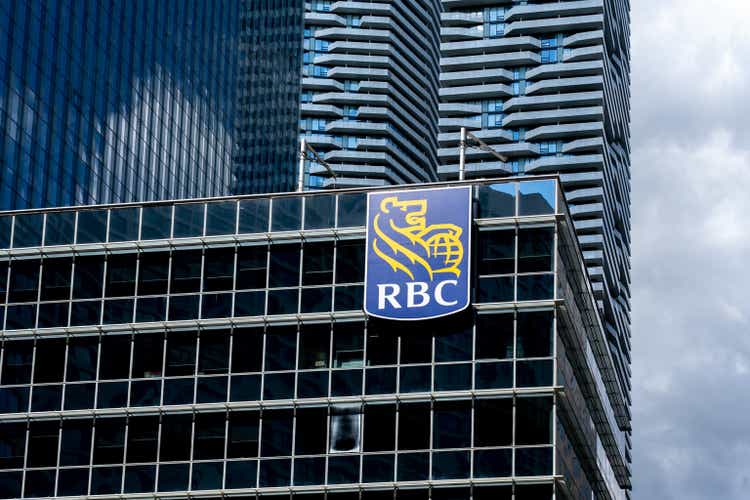Royal Bank of Canada’s HSBC Canada deal likely to face scrutiny, (NYSE:RY)

JHVEPhoto
Royal Bank of Canada’s (NYSE:RY) proposed C$13.5B acquisition of HSBC’s (NYSE:HSBC) Canada operations, is the biggest Canadian bank deal in years. That alone is likely to have Canadian regulators looking closely at the deal in a country where the banking industry is already highly concentrated and RBC is its biggest lender.
According to Reuters, Canada’s Big 6 Banks control ~80% of total banking assets in the country. Outside of the Big 6, HSBC Canada is one of the larger Canadian banks,” said Carl De Souza, senior vice president, North American Financial Institutions, at DBRS Morningstar.
By comparison, U.S.’s banking industry is “much more fragmented,” he said. The five largest banks in the U.S. control ~40% of American assets, according to Reuters’ data.
“There’s a lot of chatter,” about the transaction, De Souza said. “They have three levels of regulatory approval,” and it’s hard to know exactly what metrics regulators will be looking at in assessing the deal’s potential effects on competition.
Canada’s Department of Finance said the country’s Office of the Superintendent of Financial Institutions will administer the application process and provide a recommendation to the Minister of Finance Chrystia Freeland. The Competition Bureau will review the transaction. The Minister of Finance “must take into account all matters she considers relevant” in whether she approves the deal, the department said in a statement.
RBC’s (RY) management, though, is confident that the deal will proceed. During a call with analysts on the day of the deal announcement, management said that HSBC Canada has only about 2% market share.
“Although the acquisition is historically meaningful and unprecedented in the Canadian banking market, HSBC Canada has less than 2% market share nationally compared with RBC’s 20% plus share in most of its retail products,” wrote S&P Global Ratings analyst Lidia Parfeniuk in a note.
KBW analyst Mike Rizvanovic upgraded RBC (RY) to Market Perform, partly due to the proposed acquisition, “which we believe provides the bank with a solid growth opportunity that sets it apart from some of its peers.” He estimates that the acquisition will close at “the very end of Q4 FY2023.” (RBC’s fiscal year ends on Oct. 31.)
HSBC Canada had $76B of net loans, as of Sept. 30, 2022 vs. RBC’s $802B of net loans. The acquisition will add $134B of assets to RBC’s $1.84T of assets; it will add $82B of deposits on top of RBC’s $1.18T of deposits.
SA contributor Junius expects the bank could face some friction in getting regulatory approval for the merger, as Canada’s government has been vocal about its opposition to industry consolidation. If the regulators require RY to divest some assets, that could spell trouble for the deal. “Given how much the rationale of the merger is dependent on expected cost synergies and the higher-than-expected valuation of HSBC Canada, a divestment of even a modest portion of the target could undermine the investment case for the transaction,” the author said.







